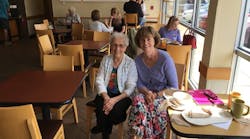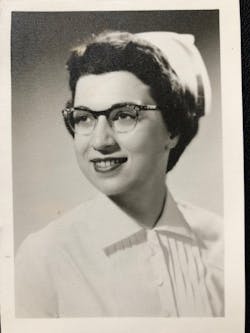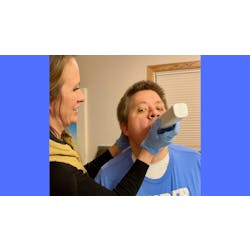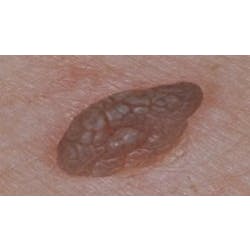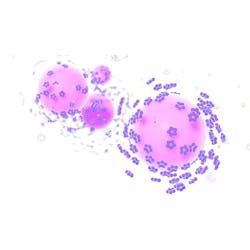It was a cloudy and drizzly late August morning, and I sat in a coffee shop having the most delightful conversation with a bright ray of sunshine.
Sarah Tarara, at the young age of 83, still practices dental hygiene. That’s right—you read that correctly. It’s not often I meet someone with twenty years more experience than I have (me being at 37 years). But here she was, right in front of me.
Sarah was a wealth of information, and she had an intense kindness that showed through so strongly right from the start of our conversation.
I learned about Sarah through Tracy McConnell, RDH, a fellow Illinois Dental Hygienists' Association member. Tracy mentioned that Sarah had reached out to her about renewing her dental hygiene license. Sarah was going to let it lapse and retire from the two days a week she worked, but she changed her mind and decided she really wanted to continue working. Well, I just had to meet this woman, and I am so glad I did. As you’ll see from reading the interview, Sarah was ahead of the curve—and still is in many respects.
Interview with Sarah Tarara, RDH
Jensen: Tell me about your family background and childhood growing up in Rockford, Illinois.
Tarara: My parents came to the United States from Italy after they were married in 1926. I was one of four girls. I have two older sisters. One is 91 now and living with Alzheimer’s. The other, who would have been 92, died from natural causes. My younger sister is 75. I was kind of an “only middle child.” My mother and father were very, very protective of their daughters.
Jensen: Can you elaborate on that?
Tarara: For everything we would do, we had to be so careful. We might get hurt! I never rode a bike. I would wear one roller skate and skate downhill near our house. That way I could stop easily. It was quite a sight to see.
Our neighborhood was filled with immigrant families from Italy, Ireland, Poland, and Germany, along with African Americans. We all got along. Everyone watched everyone else’s kids. We all walked to school together. I was raised with the expectation that girls finished high school and got married and had babies. Somehow, very early, I knew this was not going to be for me.
Jensen: What did you want to do?
Tarara: I wanted to be a nurse in an operating room. I even wrote a paper on it for a school assignment and received an A+. My mother and father said no to the idea. Fortunately, a high school counselor suggested that I take an open position for a dental assisting job with a dentist in town. I did—and I loved it.
Dr. Howard Redmann encouraged me to go further with my education and become a dental hygienist. This would mean going to college—something my parents would have difficulty affording (or let alone agreeing to let me attend). Northwestern University, in Chicago, was hours away. But at a dinner at our home, Dr. Redmann encouraged my parents to be open to the idea, saying he would even pay for school. [Just talking about this brought tears to Sarah’s eyes.] When my Dad saw how serious I was, he agreed to pay and send me to college. I was absolutely thrilled.
Sarah Tarara in 1957
Jensen: Tell me a little about what it was like at the Northwestern University dental hygiene program from 1955 to 1957, when you were there?
Tarara: I received my associates degree in dental hygiene. That was the only degree available. We had many classes with the dental students. My tuition, room, and board was $600 a year. We stood while treating our patients. We were the pilot class for the national board exam and worked on a live patients for it. We took the patient exam at Loyola University’s dental school and our written board at Northwestern. It was a busy time of life for sure.
Jensen: After graduation, what happened next for you professionally?
Tarara: I moved back to Rockford. I wanted to be near family and help my parents as much as possible. My father worked as a machinist in a textile factory. He worked very hard to support his family. The owner of the company allowed employees to take home the leftover material scraps. My mother, who was an expert seamstress, would make us all types of clothing. I think about her talent and how amazing it was. I am still in awe.
I started working for Dr. Roger Rice. Then, I worked for Dr. Dan Nielsen, who was responsible for getting the water in the Rockford area fluoridated. I also volunteered at a Well Baby Clinic. I provided education and worked coordinating dental treatment for the clients. I was active in the Winnebago Dental Hygiene Association. There were six of us. All were wonderful women.
I was also very involved with the start of the Crusader Clinic. I am very proud of this work. I was the first paid employee. We purchased the dental equipment and supplies with grant money. The building was an old Catholic school, and we converted it into a medical and dental clinic for low income families. I worked there with some great people during the years of 1969 to 1972. Unfortunately, I learned firsthand how prejudice hurts people. Not all the staff treated every patient the same. This baffled me and made me angry. I grew up where all races and cultural backgrounds got along. I took my issues with this to the clinic’s board of directors, and policy changes were made for the better.
Then, in 1978, a second periodontist came to Rockford, and I was thrilled for the opportunity to work in this dental specialty.
Jensen: This is the dental office where you still work?
Tarara: Yes! I work two days a week. Tuesdays and Thursdays, 8:00 a.m. to 5:00 p.m. I have one-hour appointments—unless I request more time. I provide periodontal maintenance visits, scaling, root planning, etc. All x-rays and appointment scheduling are done by the staff. I can concentrate on being with my patients and providing specific treatment. Dental office systems and protocol are what make offices efficient. They are so important. And, yes, I have seen some patients for 40 years!
Jensen: Do you have any favorite patient stories?
Tarara: I have so many wonderful patients. They are really my family. What I really love is seeing their oral health improve. This is what it is all about. (If you are good at what you do, you’ll never need to advertise.) I have had a great run with Dr. Bernstein and the staff, plus my many friendships and the nice atmosphere and working conditions. So, yes—I did renew my license!
Jensen: As a side track, I just have to add that you look amazing. What is your secret to your overall health?
Tarara: I’ve been blessed with great health. I’ll be 83 this year! I feel good and try and stay active, although I did stop cutting my grass last year. I take no medications. I am up every day at 5:00 a.m. I love to garden. And I love to cook.
Jensen: Please tell me you have all your mother’s recipes from Italy?
Tarara: Yes, I do! Everything she cooked for dinner and dessert. I love to bake.
Jensen: OK, back to more questions. You’ve decided to renew your Illinois dental hygiene license for another three-year licensure period. Why is this so important to you?
Tarara: I just want to keep on working for as long as I am healthy. I feel it is that important for my overall physical, mental, spiritual health. I’ve been using my iPad to take some CE courses online.
Jensen: What would you have loved to have done in the profession?
Tarara: I would have loved to have done mission trip work. This was just not possible in the early years I was working.
Jensen: What would you add to the education curriculum of dental hygienists?
Tarara: If there was a College of Common Sense, we should all have to attend it. I also think it would be wise for prospective dental hygiene students to have mandatory observation hours at a dental office as a prerequisite. Then, perhaps, I would combine a dental assisting program with a dental hygiene program, and add on courses that are needed to complete a four-year degree. Go for advancing your education. Get paid for what you like doing. If you’re not doing what you love—it will show.
Jensen: A few fun questions now. What do you do outside the office for enjoyment?
Tarara: Growing up in the depression, we all learned to sew and garden. I still enjoy both.
Jensen: Favorite books to read?
Tarara: Cookbooks!
Jensen: Favorite reality TV show?
Tarara: America’s Got Talent and anything on theFood Network or Create.
Jensen: Dogs or cats?
Tarara: Dogs. I had a shis tzu for 18 years. My nephew has a dog that I enjoy being with now.
Jensen: Social media: Love it or not?
Tarara: Not! I’m part old school. Technology is fantastic when used for the overall good. But I see computers and cell phones distracting from one-on-one conversations. This is the skill set that dental hygienists must have to effectively communicate and educate patients. If they only communicate by texting or email, they are missing out on so much.
Jensen: If you could go back in time, what advice would you give to yourself on your day of graduation?
Tarara: Keep going. Move forward. Advance your education. And, most importantly, stay positive.
Jensen: After 61 years working as a registered dental hygienist, what advice would you give a new grad?
Tarara: Give back to your community. Like what you do. If you don’t and feel stuck, it will show. So move on to something else.
Jensen: Where would you like to see dental hygienists go in the future?
Tarara: Doing more! We need to demand an increase in the base standard of education level for dental hygiene. More respect is needed for our profession. We need to inform the public better as to what it is we do to help improve the lives of our patients.
Dental hygienists must also remember to respect their patients. You earn respect by giving respect.
Jensen: I love that, Sarah! It has been a pleasure and honor to chat with you today. I hope we can meet up again in the future. One last question: What are three words that describe you?
Tarara: Conscientious, high expectations, and compassionate!
This interview conducted on August 29, 2018, in Rockford, Illinois. Answers have been edited for clarity.
Mary Jensen, MS, RDH, has been a registered dental hygienist for more than 35 years. She is the lead oral specialist with the HyLife Oral Health Alliance, where she provides weekly oral hygiene care to dependent seniors in memory care and assisted living communities. She is also the lead dental hygienist for Alliance for Smiles, a nonprofit that provides free reconstructive surgery to children with cleft lips and palates in China and other countries. In 2014, she received the Young Dental Caring Clinician Award. In 2015, she was named Volunteer of the Year for Alliance for Smiles. In 2017, she received Heart to Hands Award from Philips/RDH magazine. She can be contacted at [email protected].
